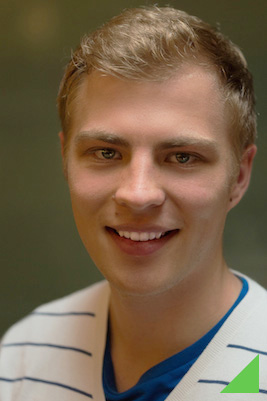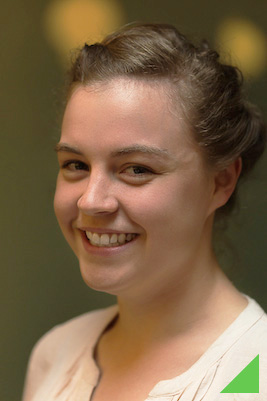Team:Oxford/team
From 2014.igem.org
(Difference between revisions)
| Line 333: | Line 333: | ||
For his detailed information on the problem of chlorinated solvents and how they are currently disposed of. | For his detailed information on the problem of chlorinated solvents and how they are currently disposed of. | ||
<br><br> | <br><br> | ||
| - | <font style="font-size:large;">Carla Brown</font> | + | <font style="font-size:large;">Carla Brown</font><br> |
For the generously donating several packs of her Bacteria Combat card game <br><br> | For the generously donating several packs of her Bacteria Combat card game <br><br> | ||
| - | <font style="font-size:large;">Janet Stott and Sarah Lloyd</font> | + | <font style="font-size:large;">Janet Stott and Sarah Lloyd</font><br> |
For their kind advice and assistance in our public engagement events at the Oxford University Museum of Natural History. | For their kind advice and assistance in our public engagement events at the Oxford University Museum of Natural History. | ||
</div> | </div> | ||
Revision as of 09:15, 14 October 2014

Team



























Glen Gowers
(3rd year Biochemist, University College)
The guy who makes everything happen, the Fred to our iGEM "Mystery Machine". When Glen isn't sailing around the country, he's hard at work in the lab and at the desk.
Glen's LinkedIn profile

Jack Hoffman
(3rd year Chemist, St John's College)
Though prodigious in his own field, Jack has tried his hand at many academic disciplines, and this curiosity and fervour for science is most welcome amongst the team.
He has been working closely with our engineers, designing mathematical frameworks for our modelling, synthesising biopolymer capsules and on them running diffusion experiments in the lab.
Jack leads part 3 of the project and is in charge of our web development and graphics.

Corinna Oswald
(3rd year Biochemist, St John's College)
Corinna is one of the founding members that organised Oxford’s first participation in iGEM.
In between perfecting the Viennese Waltz and denying that Austrians are always yodeling in the Alps (which we refuse to accept), she works hard to ensure that her and the entire team's work is done efficiently and to the highest standards.

Andy Russell
(3rd year Biochemist, The Queen's College)
Full-time biochemist, part-time fashionista; Andy fancies himself as the ''arbiter elegantarium'' of the team. Andy is now entering his third year as a biochemist at The Queen's College, where he is an accomplished sportsman.

Sian Mcgibbon
(3rd year Lawyer, University College)
Siân is the model lawyer along with everything that implies.
She has led the Policy and Practices element of our project, with a particular emphasis on intellectual property policy and its role in shaping the developing field of synthetic biology.

Tim Ang
(3rd year Biologist, St John's College)
Tim's primary academic interests focus on evolutionary theory, particularly social evolution. A keen weightlifter, his frequent references to weights and protein shakes naturally make him the hub of enchanting conversation here at Oxford iGEM.
Tim is in charge of our interlab study and poster.

Emily Prichett
(3rd year Biochemist, University College)
asfygia sdyasdyuf asdyu asydo yuasd yea sec asuif asgc asi gkuasd vyias hk;sbd ylgas d;v sdjog s;DC AGSLDC GAJSDG HAS DYG su sduigsuad g

Philipp Lorenz
(3rd year Biochemist, University College)
It was Phil's idea to bring iGEM to Oxford, and he continues to ensure our project runs as smoothly as a German train schedule.

Fran Donellan
(3rd year Biochemist, Oriel College)
Not just a member of the biochemist team but also leading our public engagement activities, no task is too big or small for Fran. This girl can provide sandwiches for 500 people at 24 hours' notice and look good doing it.

Shahbano Soomro
(3rd year PPEist, University College)
A third year student in Politics and Economics at University College, Shahbano has a particular interest in Environmental policy and philosophy. As well as helping Fran with organising our public engagement and events, she will be watching over our project from afar during the summer.

Matt Booth
(3rd year Engineer, St John's College)
Matt is an avid Rugby player, having recently achieved great success with the college team, and adopts a no-nonsense approach to many of his university endeavours, including iGEM.

Oliver Vince
(3rd year Engineer, University College)
Oliver is our keenest team member - nothing can douse his motivation. In addition to taking charge of the maths and software, he feels responsible for our entertainment.
Oliver has been particularly involved with the modelling of the genetic circuits and the CAD/CAM side of the project. He has also played a leading role in the construction of the pages on the website.

Leroy Lim
(3rd year Engineer, St John's College)
During term, Leroy indulges in many of the quirks of Oxford life, namely rowing, bops and colourful trousers. During iGEM, he's our engineer and self-appointed social sec.

Supervisors

Dr George Wadhams
George Wadhams’ research interests lie in how bacteria sense and integrate environmental information. His group focuses on understanding in a quantitative manner how multiple, homologous pathways operate in individual cells and how the components of these pathways can be used to create synthetic pathways.
George Wadhams’ research interests lie in how bacteria sense and integrate environmental information. His group focuses on understanding in a quantitative manner how multiple, homologous pathways operate in individual cells and how the components of these pathways can be used to create synthetic pathways.

Dr Ciarán Kelly
Ciarán Kelly obtained a PhD for his work in Frank Sargant’s group, constructing and characterising synthetic biohydrogen production pathways in E. coli. He is interested in the construction, characterisation, and re-engineering synthetic enzymes and pathways for the production of high-value chemicals.
Ciarán Kelly obtained a PhD for his work in Frank Sargant’s group, constructing and characterising synthetic biohydrogen production pathways in E. coli. He is interested in the construction, characterisation, and re-engineering synthetic enzymes and pathways for the production of high-value chemicals.

Mr Karl Brune
Karl Brune's research interests lie in elucidating metabolic pathways. His previous work at Imperial College London was focused on engineering microbial consortia to enhance biomining and bioremediation, as well as on the study of photoautotrophic organisms.
Karl Brune's research interests lie in elucidating metabolic pathways. His previous work at Imperial College London was focused on engineering microbial consortia to enhance biomining and bioremediation, as well as on the study of photoautotrophic organisms.

Advisors

Professor Judy Armitage
Judy Armitage is interested in the dynamics of bacterial sensory transduction and the control of bacterial motility. In particular, her research group focuses on the communication between the sensory and adaption mechanisms of the two pathways as a model for sensory network integration in general..
Judy Armitage is interested in the dynamics of bacterial sensory transduction and the control of bacterial motility. In particular, her research group focuses on the communication between the sensory and adaption mechanisms of the two pathways as a model for sensory network integration in general..

Professor Anthony Watts
Anthony Watts’ group is devising solid state NMR methods for determining high-resolution details of information-rich sites within membrane receptors. Recent focus has been on the neurotensin receptor (NTS1), which is now available highly purified and monodispersed in detergent as well as in a ligand-binding form.
Anthony Watts’ group is devising solid state NMR methods for determining high-resolution details of information-rich sites within membrane receptors. Recent focus has been on the neurotensin receptor (NTS1), which is now available highly purified and monodispersed in detergent as well as in a ligand-binding form.

Professor Antonis Papachristodoulou
Antonis Papachristodoulou’s research interests include systems and synthetic biology, network systems, aerospace systems and flow control, and convex optimisation. Furthermore, he works on modern control theory, robust stability analysis and design, as well as nonlinear dynamical systems and Lyapunov stability.
Antonis Papachristodoulou’s research interests include systems and synthetic biology, network systems, aerospace systems and flow control, and convex optimisation. Furthermore, he works on modern control theory, robust stability analysis and design, as well as nonlinear dynamical systems and Lyapunov stability.

Andreas Harris
Andreas Harris works on the design and implementation of gene regulatory networks harnessing feedback to increase robustness and tunability. The designs are based around transcriptional networks and attempt to translate well-understood control modules, such as proportional and integral controllers, to biological systems.
Andreas Harris works on the design and implementation of gene regulatory networks harnessing feedback to increase robustness and tunability. The designs are based around transcriptional networks and attempt to translate well-understood control modules, such as proportional and integral controllers, to biological systems.

Dr Lucas Black
Lucas is an imaging specialist helping out with quantification of parts and to give general guidance throughout the project. The team is very grateful for Lucas's excellent photograpy, including our team photos and the photograph of the Radcliffe Camera on our homepage.
Lucas is an imaging specialist helping out with quantification of parts and to give general guidance throughout the project. The team is very grateful for Lucas's excellent photograpy, including our team photos and the photograph of the Radcliffe Camera on our homepage.

With thanks...
Darragh Ennis
For his 3D printing expertise.
Josef Patoprsty
For advising how to debug the website. http://josefnpat.com
Ashok Menon
For his website advice and debugging expertise.
Dr Frederic Coulon (Department of Environmental Science and Technology, School of Applied Sciences, Cranfield University)
For his information on DCM and water treatment.
Shaun Rowson (Team Leader - Groundwater & Contaminated Land, Environment Agency)
For his detailed information on the problem of chlorinated solvents and how they are currently disposed of.
Carla Brown
For the generously donating several packs of her Bacteria Combat card game
Janet Stott and Sarah Lloyd
For their kind advice and assistance in our public engagement events at the Oxford University Museum of Natural History.
For his 3D printing expertise.
Josef Patoprsty
For advising how to debug the website. http://josefnpat.com
Ashok Menon
For his website advice and debugging expertise.
Dr Frederic Coulon (Department of Environmental Science and Technology, School of Applied Sciences, Cranfield University)
For his information on DCM and water treatment.
Shaun Rowson (Team Leader - Groundwater & Contaminated Land, Environment Agency)
For his detailed information on the problem of chlorinated solvents and how they are currently disposed of.
Carla Brown
For the generously donating several packs of her Bacteria Combat card game
Janet Stott and Sarah Lloyd
For their kind advice and assistance in our public engagement events at the Oxford University Museum of Natural History.
a a a a a a a a a a a aa a a a a a a a a aa a a a a a a a a a a a a a a a a a a a aa a a a a a a a a aa a a a a a a a a a a a a a a a a a a a aa a a a a a a a a aa a a a a a a a a a a a a a a a a a a a aa a a a a a a a a aa a a a a a a a a a a a a a a a a a a a aa a a a a a a a a aa a a a a a a a a a a a a a a a a a a a aa a a a a a a a a aa a a a a a a a a a a a a a a a a a a a aa a a a a a a a a aa a a a a a a a a a a a a a a a a a a a aa a a a a a a a a aa a a a a a a a a a a a a a a a a a a a aa a a a a a a a a aa a a a a a a a a a a a a a a a a a a a aa a a a a a a a a aa a a a a a a a a a a a a a a a a a a a aa a a a a a a a a aa a a a a a a a a a a a a a a a a a a a aa a a a a a a a a aa a a a a a a a a a a a a a a a a a a a aa a a a a a a a a aa a a a a a a a a a a a a a a a a a a a aa a a a a a a a a aa a a a a a a a a a a a a a a a a a a a aa a a a a a a a a aa a a a a a a a a a a a a a a a a a a a aa a a a a a a a a aa a a a a a a a a



































Retrieved from "http://2014.igem.org/Team:Oxford/team"
 "
"




























